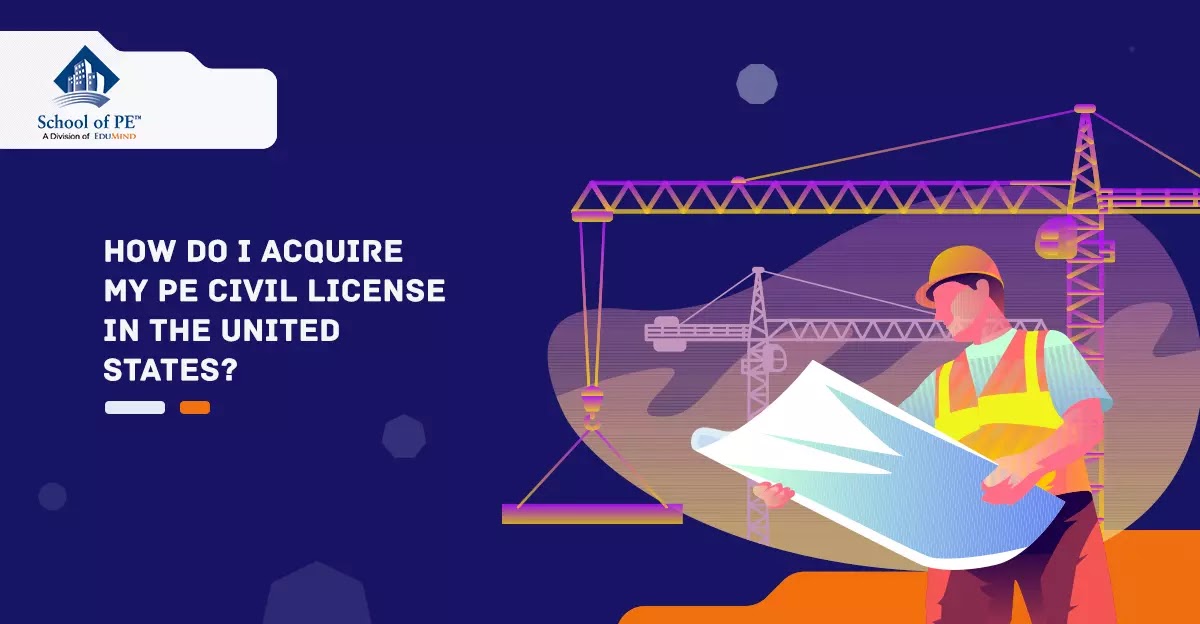Applying for and acquiring your PE Civil license in the United States is no simple task. There are multiple requirements that need to be fulfilled before you can receive your license, and each one takes some time and energy to ensure they are properly addressed. One of the benefits about the modern application process is that it is clearly laid out and streamlined. This blog will detail the steps necessary to achieve this advanced milestone of your engineering career!
Table of Contents
1. Check Your State's Board Licensing Requirements
The first place to start when verifying what you need to achieve PE Civil licensure is your local state's Board of Professional Engineers and Land Surveyors. Although there are some similarities in requirements between various states, many states can have more specific requirements that need to be addressed. For instance, some states not only require you to pass the national PE Civil exam, but also state specific examinations such as surveying and seismic exams before licensure can be presented. The main items that will be required include:
- A passing grade on both the FE and PE Civil exam.
- A bachelor's degree in engineering from an EAC/ABET accredited program (or other equivalent degree combinations).
- Engineering work experience.
- References from other engineers.
Assuming you have the proper education requirements and work experience requirements, the next major step towards licensure is taking the national exam.

2. The PE Civil Exam
The PE Civil Exam is the hardest part of getting licensed. It is an 8-hour, 80-question exam that is broken up into two parts: a morning session and an afternoon session. The morning session covers all the civil engineering fundamentals one will have learned through their educational experiences with an EAC/ABET-accredited program. The afternoon session is specific to your chosen discipline and delves deeper into the coverage of those specific topics and subjects. Applying for the exam can be completed through the NCEES website (https://ncees.org/). With proper effort, and with the help of a leading exam review course provider like School of PE, you should be able to pass the exam and move onto the state-specific application process itself.
3. The Application
Once you reach the application process for your state licensing board, you will first need to verify your states' preferred method of application submission. Some states will utilize what is known as an NCEES record-where the application can be electronically uploaded-which can help shorten application process times when trying to apply for additional licenses in other states. Other states utilize more traditional processes that involve mailing all pertinent documentation directly to the state licensing board. No matter which process your state uses, references from colleagues and peers will be a necessary component of your application. References need to be other professional engineers and individuals who can vouch for your work and provide insight on your relevant experience for the Board's review. Be sure to keep an eye out for state-specific reference requirements, such as all references needing to be provided from engineers licensed in the same state in which you are applying.
4. Conclusion
Once you have passed the national exam and added all the education, work experience, and reference requirements, you are ready to finally submit your application! Make sure to do one last review of the application and submittal requirements to make sure nothing is left out. There are plenty of stories of engineers getting applications rejected because of minor mistakes in the submittal process.
After a final review is complete, the last thing that will be needed is payment of the application fee which can be found on your state's licensing board website. Once the fee has been paid and all appropriate documents are sent in, you can finally kick back, relax, and wait for your licensure results! Soon, you'll be using your own seal!
No comments :
Post a Comment